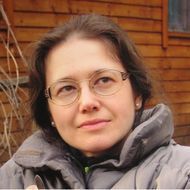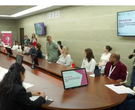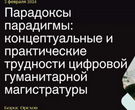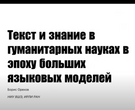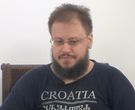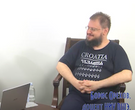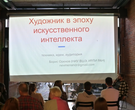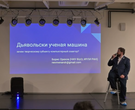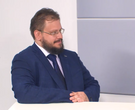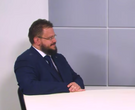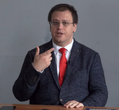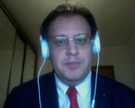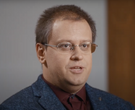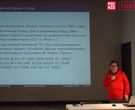- A
- A
- A
- АБB
- АБB
- АБB
- А
- А
- А
- А
- А
- Национальный исследовательский университет «Высшая школа экономики»
- Факультет гуманитарных наук
- Школа лингвистики
- Мероприятия
- Лекции Мариан Митун в Школе лингвистики
-
Школа
- О школе
- Сотрудники
- Семинары
-
Исследовательские подразделения
-
- Международная лаборатория языковой конвергенции
- Центр «Русский как иностранный»
- Центр цифровых гуманитарных исследований
- Центр языка и мозга
- Лаборатория по формальным моделям в лингвистике
- Лаборатория «Корпусные исследования»
- Лаборатория языков Кавказа
- Лаборатория учебных корпусов
- Лаборатория теоретической и полевой фольклористики
- Лаборатория социогуманитарных исследований Севера и Арктики
-
-
Проекты
-
Проекты сотрудников
-
Проекты студентов и аспирантов
-
Завершённые проекты
- Некомпозициональные конструкции в эритажном русском
- Компьютерные и лингвистические ресурсы для поддержки шугнанского языка
- Лингвоспецифическая разметка китайских текстов в Русско-китайском параллельном корпусе НКРЯ
- Цифровой архив: создание корпуса журнала "Отечественные записки"
- Создание лингвокультурологического подкаста о России для иностранцев «Yellow Blue Bus» (Я люблю вас)
- База данных русских идиом
- Компьютерные и корпусные инструменты для иранистических исследований
- Русский разговорный клуб
- Шугнанские глаголы в типологическом освещении
- Создание академического онлайн-словаря персидского языка
-
- Международное сотрудничество
- Экспедиции
- Ресурсы
- Препринты
- Наша книжная полка
-
Образовательные программы
- Бакалаврская программа «Фундаментальная и компьютерная лингвистика»
- Магистерская программа «Компьютерная лингвистика»
- Магистерская программа «Лингвистическая теория и описание языка»
- Магистерская программа «Русский как иностранный во взаимодействии языков и культур»
- Магистерская программа «Цифровые методы в гуманитарных науках»
- Аспирантская школа по филологическим наукам
Адрес: 105066, г. Москва,
Старая Басманная ул., д. 21/4
Телефон: +7 (495) 772-95-90 доб. 22734
E-mail: ling@hse.ru
Редакторы сайта — Наталья Борисовна Пименова, Максим Олегович Бажуков, Константин Евгеньевич Сатдаров
- Международная лаборатория языковой конвергенции
- Лаборатория «Корпусные исследования»
- Лаборатория по формальным моделям в лингвистике
- Лаборатория языков Кавказа
- Лаборатория социогуманитарных исследований Севера и Арктики
- Научно-учебная лаборатория учебных корпусов
- Центр «Русский как иностранный»
- Научно-учебные группы
- Каталог проектов по компьютерной лингвистике
- Проекты, поддерживаемые грантами
- Русский язык для всех
- Лингвистический кружок для школьников
- Лингвистика в Центре открытого образования
Школа лингвистики была образована в декабре 2014 года. Сотрудники школы преподают на образовательных программах по теоретической и компьютерной лингвистике в бакалавриате и магистратуре. Лингвистика, которой занимаются в школе, — это не только знание иностранных языков, но прежде всего наука о языке и о способах его моделирования. Научные группы школы занимаются исследованиями в области типологии, социолингвистики и ареальной лингвистики, корпусной лингвистики и лексикографии, древних языков и истории языка. Кроме того, в школе создаются лингвистические технологии и ресурсы: корпуса, обучающие тренажеры, словари и тезаурусы, технологии для электронного представления текстов культурного наследия.
Yerbolova A. S., Tomashchuk K., Kogan A. et al.
Complexity. 2026. P. 1-34.
В печати
Lander Y., Bagirokova I., Lander A.
In bk.: Theoretical Issues in the Languages of the Caucasus. Amsterdam: John Benjamins, 2026.
arxiv.org. Computer Science. Cornell University, 2024

Лекции Мариан Митун в Школе лингвистики
Лекции ориентированы в первую очередь на студентов бакалавриата и магистратуры, но открыты для всех желающих. Лекции пройдут в аудитории А-307 во вторник и четверг, 17-го и 19-го сентября, с 18:00 до 21:00.
Авторская аннотация лекций
Lecture 1. What is complexity?
Linguists often remark that a particular structural area of a certain language is complex. But what exactly is complexity? There is a traditional idea that the most elegant formal description matches speaker knowledge. But is complexity really the same for the analyst, the speaker, and the language learner? Here different approaches to complexity are discussed, along with strategies for assessing them and hypotheses that have been proposed for how complexity may be built up in language over time.
Lecture 2. Beyond generalization
As linguists we are constantly seeking to find order in apparent chaos, to discover basic underlying principles which govern the myriad structures we observe in speech. But sometimes we can jump too soon. In many languages, pronominal forms representing core arguments (subjects and objects, ergatives and absolutives, agents and patients, etc.) match those representing possessors. Here it will be shown that sometimes looking beyond superficial generalizations can reveal the complex routes that led to them.
Lecture 3. Sensitivity in typology
A good knowledge of typology, of the ranges of categories and patterns that occur across languages, is fundamental not only to our understanding of the essence of language, but also to insightful work with individual languages. Such awareness makes it possible to identify items much more quickly in a new language and to spot unusual ones. At the same time, hasty reliance on established categories can impede our progress in refining our typologies. This point will be illustrated with the grammar of alienability and of gender.
Lecture 4. Syntax beyond the clause: The emergence of clause chaining
We find strong areal concentrations of certain clause-chaining strategies, suggesting that they have been shaped by language contact. But how could such deeply-embedded grammar be transferred? Here processes are traced by which such clusters of parallel clause-combining strategies may develop.
В НИУ ВШЭ работает пропускная система. Если вы не являетесь сотрудником или студентом университета, пожалуйста, пройдите регистрацию, ссылка на которую приведена на этой странице.
- О ВЫШКЕ
- Цифры и факты
- Руководство и структура
- Устойчивое развитие в НИУ ВШЭ
- Преподаватели и сотрудники
- Корпуса и общежития
- Закупки
- Обращения граждан в НИУ ВШЭ
- Фонд целевого капитала
- Противодействие коррупции
- Сведения о доходах, расходах, об имуществе и обязательствах имущественного характера
- Сведения об образовательной организации
- Людям с ограниченными возможностями здоровья
- Единая платежная страница
- Работа в Вышке
- ОБРАЗОВАНИЕ
- Лицей
- Довузовская подготовка
- Олимпиады
- Прием в бакалавриат
- Вышка+
- Прием в магистратуру
- Аспирантура
- Дополнительное образование
- Центр развития карьеры
- Бизнес-инкубатор ВШЭ
- Образовательные партнерства
- Обратная связь и взаимодействие с получателями услуг
-
http://www.minobrnauki.gov.ru/
Министерство науки и высшего образования РФ
-
https://edu.gov.ru/
Министерство просвещения РФ
-
http://www.edu.ru
Федеральный портал «Российское образование»
-
https://elearning.hse.ru/mooc
Массовые открытые онлайн-курсы
- © НИУ ВШЭ 1993–2026 Адреса и контакты Условия использования материалов Политика конфиденциальности Карта сайта
- Редактору


